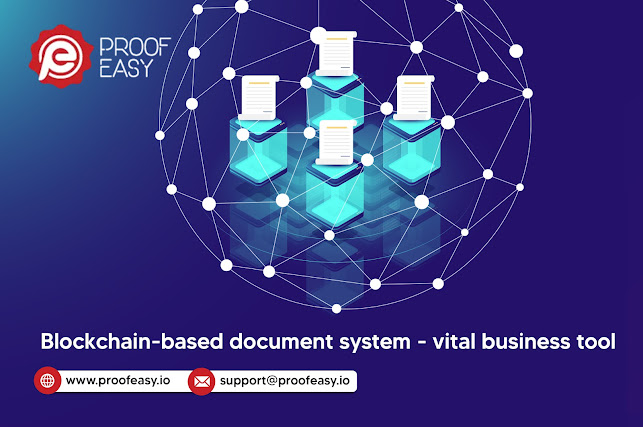Busting The Common Misconceptions Involving Digital Signatures Use in Healthcare
Digital transformation is not just a trend but a necessity in the
rapidly evolving landscape of healthcare. Among the various technologies making
waves, digital signatures is one of the prominent tools for streamlining
processes.
They also guarantee to deliver security in the healthcare industry.
However, many professionals are still unclear about key aspects, including
what is a digital certificate and how it supports digital signatures.
As a result, creating confusion and hesitancy among professionals. In
this blog, we aim to clear up some of the most common misconceptions about
digital signatures in healthcare.
Misconception 1: Digital Signatures Are Not Secure Enough
One of the biggest misconceptions is that digital signatures lack the
necessary security for sensitive healthcare data. In an industry where patient
confidentiality is paramount, concerns about data breaches and unauthorized
access are understandable. However, this is far from the truth.
Fact: Digital signatures employ advanced encryption methods to ensure the
highest level of security. When healthcare professionals sign documents
electronically, the signature is created using a cryptographic algorithm.
This algorithm uniquely identifies the signer and protects the document
from tampering. Any alteration to the signed document invalidates the
signature, making it impossible to modify without detection.
Misconception 2: Digital Signatures Are Not Legally Valid in Healthcare
Many healthcare professionals are unsure if digital signatures hold the
same legal weight as traditional signatures. There is a lingering belief that
wet ink signatures are the only legally binding option for signing medical
records, prescriptions, or patient consent forms.
Fact: Digital signatures are legally recognized in most countries. They are
approved under laws such as the eIDAS Regulation in the European Union and the
ESIGN Act and UETA in the United States.
These laws establish the legal equivalence of digital signatures to
handwritten signatures, provided certain conditions are met. In healthcare,
this ensures that digital signatures are legally valid for signing —
●
Patient records
● Treatment authorizations
● Medical insurance documents
● Professionals’ digital certificate
using blockchain
Misconception 3: Implementing Digital Signatures Is Complex and
Expensive
Another common misconception is that the process of digital signature
adoption can be complex and costly. The majority believes that the process
involves substantial changes to the existing healthcare IT infrastructure.
Many assume it would require extensive training and disrupt day-to-day
operations.
Fact: Implementing digital signatures is a seamless process. They can easily
integrate with existing electronic health record (EHR) systems and other
healthcare platforms.
Most digital signature solutions are cloud-based and highly
customizable. This means healthcare providers can deploy them without
overhauling their systems.
Moreover, the cost-effectiveness of digital signatures becomes apparent
when you factor in the savings from reduced paper use, faster processing times,
and fewer administrative errors.
Misconception 4: Digital Signatures Slow Down Healthcare Processes
There is a belief that using digital signatures might slow down
workflows. Particularly in high-pressure environments like hospitals, where time
is critical.
Some worry that the additional steps involved in creating and verifying
digital signatures could be cumbersome for healthcare staff.
Fact: Digital signatures actually speed up healthcare workflows by —
●
Eliminating manual
paperwork
● Reducing delays in obtaining signatures
● Enabling faster processing of patient
forms, prescriptions, and billing documents.
With digital signatures, healthcare professionals can sign documents in
real time, even remotely. For example, ProofEasy is a platform where they offer
digital certificates on blockchain along with their verifiable signature
solution VeriDoc Global.
This leads to validated certificates of proof for healthcare
professionals.
Misconception 5: Digital Signatures Are Only Useful for Administrative
Tasks
Some healthcare professionals believe that digital signatures are only
applicable to administrative tasks. These include signing contracts or HR
documents, and that they have little relevance to clinical operations.
Fact: Digital signatures have a wide range of applications in healthcare,
extending well beyond administrative functions. They are crucial for signing
electronic medical records (EMRs), patient consent forms, prescriptions,
diagnostic results, and even telemedicine documents.
In clinical trials, digital signatures ensure the integrity and
authenticity of data collection and reporting. An aspect that is essential for
compliance with regulations like Good Clinical Practice (GCP).
They are also used in healthcare professionals’ certificate
blockchain to show the authenticity of their qualification.
Misconception 6: Digital Signatures Compromise Patient Privacy
Some healthcare professionals express concerns that digital signatures
might expose sensitive patient information to unauthorized parties. This may
lead to compromising patient privacy.
Fact: Digital signatures, when implemented with proper encryption and
authentication methods, enhance patient privacy rather than compromise it. The
use of digital certificates to authenticate the identity of the signer, along
with secure encryption technologies, ensures that only authorized personnel can
access patient data.
This level of control is much higher than paper-based documents, which
can be misplaced, lost, or viewed by unauthorized individuals.
Misconception 7: Patients Won't Accept Digital Signatures
There is a concern that patients won’t accept the use of digital
signatures. Especially, older individuals or those who are not tech-savvy, may
resist its use for their medical forms and consent documents.
Fact: With the rise of telehealth and online patient portals, more patients
are becoming comfortable with digital healthcare solutions. The COVID-19
pandemic further accelerated this shift, with many patients adapting to digital
communication and remote care.
Digital signature platforms are designed to be user-friendly, with
simple interfaces. The development that makes it easy for patients to review
and sign documents electronically from any device.
A Powerful Digital Signature Solution in The Market
ProofEasy is a document security and verification platform that offers
powerful solutions. One of them is their pioneering digital signature solution
– VeriDoc Sign. Built on blockchain technology, VeriDoc Sign is a 100% secure
eSignature solution.
Using their ProofEasy platform along with their e-signature solution
offer users with a plethora of benefits. Security measures like audit trails
and access controls, significantly improve the overall privacy and security of
healthcare data.
Conclusion
Digital signatures are at the forefront of the digital transformation,
offering a secure, and legally compliant solution for handling sensitive
healthcare documents. Busting the myths surrounding their use is essential for
encouraging wider adoption and helping healthcare providers reap the benefits
they offer.
If you are looking for a robust digital signature solution or have
questions like what is a digital certificate and how these signs can be
used on these documents, then connect with ProofEasy. They have a robust
reputation in offering best solutions and services related to them.




Comments
Post a Comment